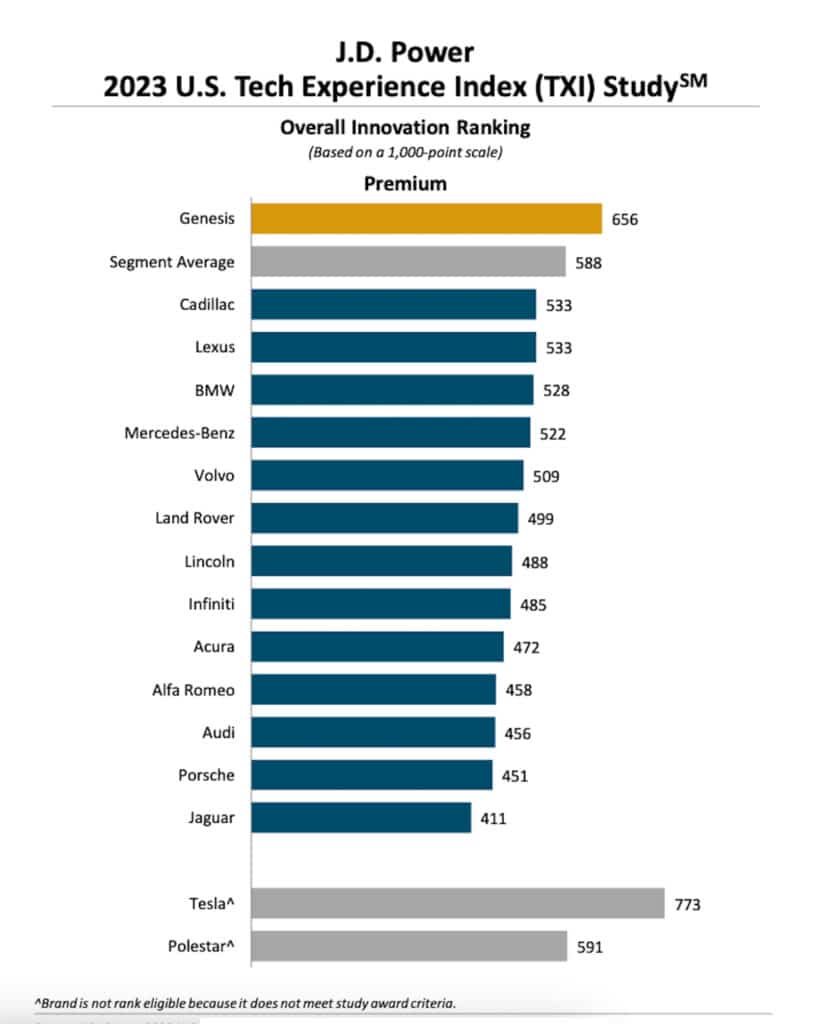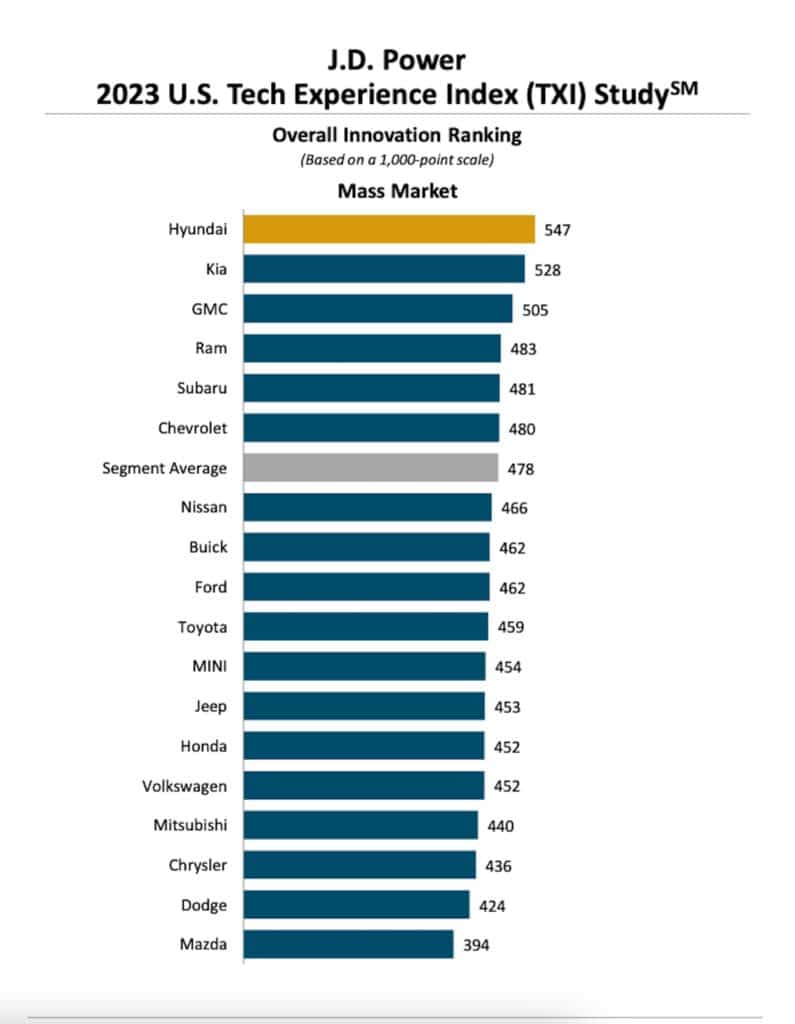South Korean carmakers Genesis and Hyundai came out on top in the latest J.D. Power Tech Experience Index, but the study sounded “warning bells” with the technologies that are becoming increasingly common in today’s automobiles.
Biometric features — such as facial and fingerprint readers — generated the most pushback among the more than 82,000 U.S. motorists who participated in Power’s 2023 “TXI” study. On the flip side, EV owners are looking forward to new plug-and-charge technology that will let them simply hook up to a public charger without having to use credit cards or apps to pay.
“Innovation through a strong advanced tech strategy is crucial for all vehicle manufacturers, especially those working to build their reputation in the electric vehicle space,” said Kathleen Rizk, senior director of user experience benchmarking and technology at J.D. Power.
Big expectations

The study underscored the fact that consumers expect their new vehicles to be equipped with the latest digital technologies, said Rizk, though she cautioned, “Success will be dependent on those manufacturers that can execute flawlessly, while ensuring the user experience is the same for those who are tech savvy and those who are not.”
In one of the more curious findings, the 2023 TXI found that 17 of the 21 advanced features now being rolled out across the industry, EV owners reported more problems than owners of gas-powered models did with the same technologies.
New entrants into the automotive market, such as Tesla, Rivian and Lucid, scored well with consumers in the Power tech study. Genesis was one of the rare exceptions among traditional brands, coming out on top among luxury marques. And its sibling brand, Hyundai, ranked number one in the mass market category.
Power noted in a study summary that Tesla would have been the top brand overall but for the fact that it limits access to owner information, and was not included in the final results. Polestar was also excluded from the brand rankings but otherwise would have come in third.

Cadillac — which has made a big push into digital technology, was third overall. At the other extreme, Mazda was the lowest-ranked brand overall, just ahead of Jaguar and Dodge.
What consumers want
The study found some technologies are proving particularly attractive to consumers. Plug-and-charge is one that 72% of EV owners said they want on their next vehicle.
On the other hand, “Regardless of biometric type, the majority of users report that they do not want these technologies in their next vehicle,” Power noted in a summary of the TXI findings. Owners not only reported problems with features like fingerprint readers and eye tracking systems, but also find them intrusive, according to Power.
The new study also raised concerns about the increasing use of ADAS, or advanced driver assistance systems, meant to improve safety and reduce the strain on motorists. There was a slight but measurable decline in the usage of features like reverse automatic emergency braking and automatic emergency steering.
Getting the tech experience right can work well for a manufacturer, helping increase buzz, said Rizk. But using the wrong technology, making it difficult to use or failing to solve problems can also generate plenty of word-of-mouth. But not the kind a carmaker might want.

